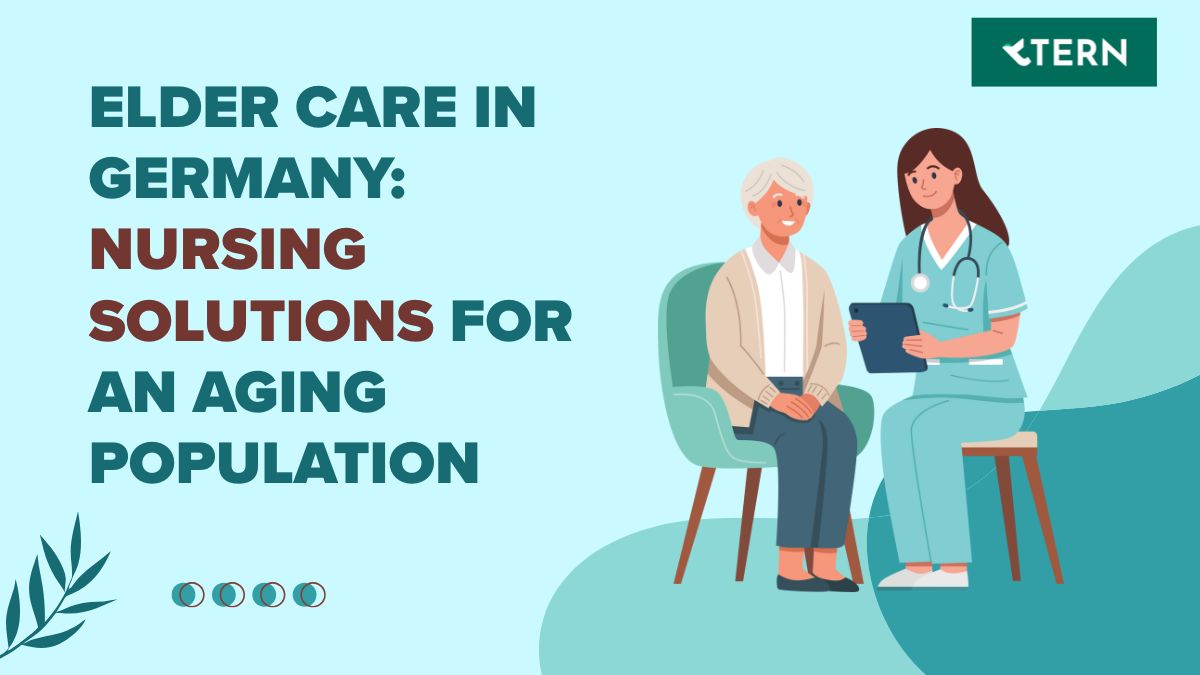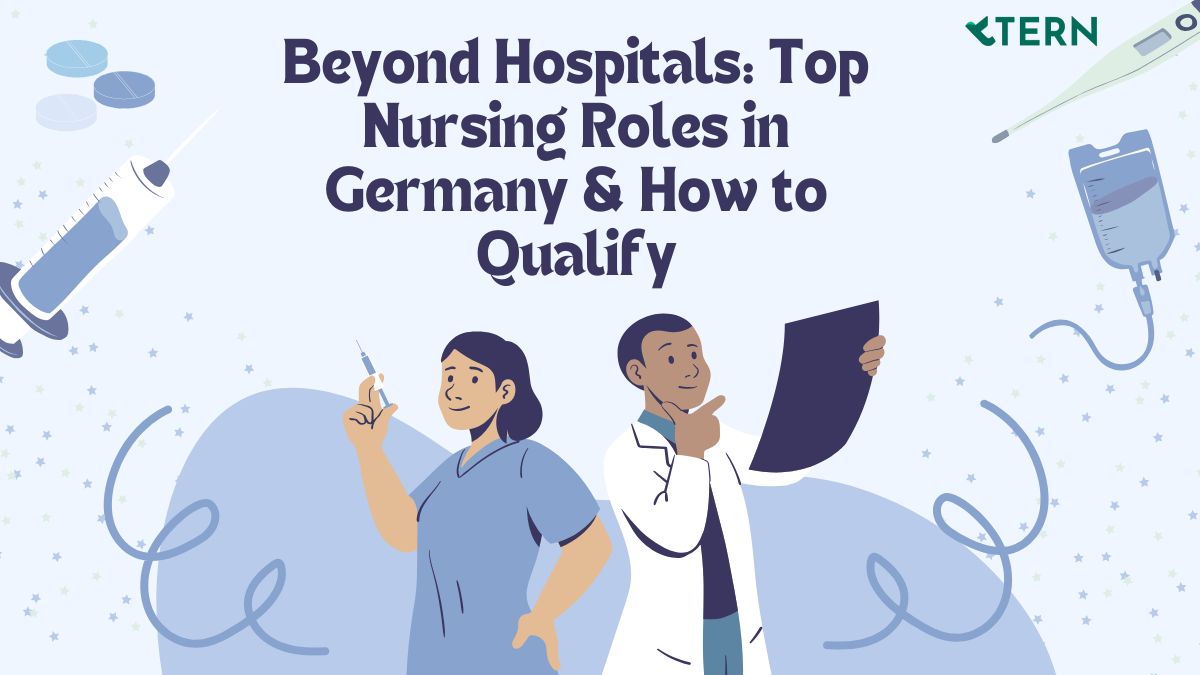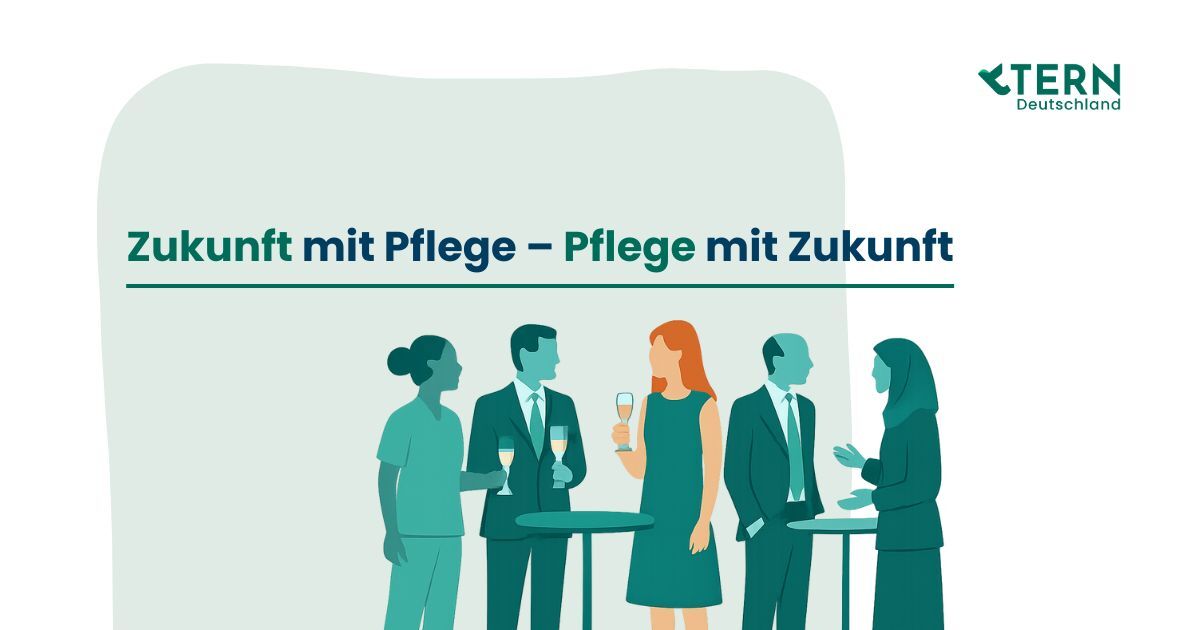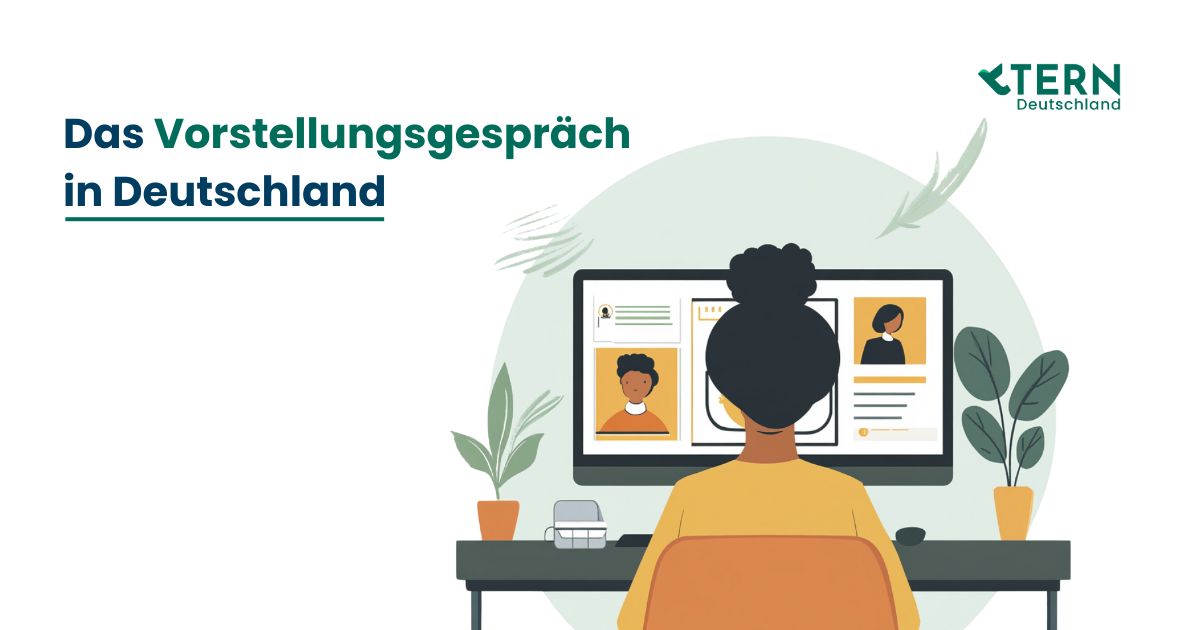Nursing in Germany
May 17, 2024
•
12 Min Read
How to Become a Registered Nurse (RN) in Germany - A Complete Guide

“Nurses dispense comfort, compassion, and caring without even a prescription.” - Val Saintsbury
The pandemic's blues still linger in our minds, and it has taught us a lot. It made us realise the importance of having a robust healthcare system and the existing shortage of healthcare providers, especially nurses.
It’s not surprising that the demand for trained nurses has almost doubled over the years, especially in developed countries like Germany.
Hospitals, nursing homes, and healthcare facilities constantly pursue qualified nurses eager to fill the gaps in patient care. Approximately 37000 job positions are vacant only in care facilities, and experts predict that approximately 500,000 nurses will be needed by 2030.
With this demand set to soar in the coming years, it presents a great opportunity for talented and skilled nurses from India to join the ranks of Germany's healthcare heroes. How? Let’s find out.
Why Work in Germany?
There is a high demand for nurses in Germany. This makes getting a job there as a skilled nurse quite easy. But, then again, moving to a different country with an unfamiliar language might create doubts. Your first question might be, why do I need to move to Germany? The answer is simple: it offers better earning opportunities and a comfortable lifestyle.
There are plenty of jobs available at different levels, salaries are impressive, and insurance and policies cover your financial and social security needs.
The German healthcare system
The German healthcare system is renowned for its efficiency, quality, and accessibility. It operates on a multi-tiered structure.
There are Krankenhaus (German Hospitals), offering specialised treatments and services to address diverse healthcare needs. Then we have Altenheim (Nursing Homes), which caters to the long-term care requirements of the elderly and disabled individuals. Germany also has Universitätsklinik (University Hospitals) affiliated with academic institutions offering advanced treatment options and specialised services. It also provides opportunities for healthcare professionals to engage in research and teaching.
The healthcare system is divided into public and private sectors. Everyone living in Germany must have health insurance, whether public or private. Public insurance is mostly for regular employees and covers most of the population. On the other hand, private insurance is for people with higher incomes, like business owners and certain government workers. Both types ensure that everyone can get medical care when they need it.
Nurses are vital to the German healthcare system. They care for patients in hospitals, homes, and nursing homes. They work with doctors and other medical staff to provide the best care possible. Being a nurse in Germany means having a stable and respected job with chances to advance in your career.
Nurse Salary in Germany
Nurses in Germany receive competitive salaries commensurate with their qualifications, experience, and job responsibilities. The salary structure varies based on factors such as the type of healthcare facility, geographic location, experience, and collective bargaining agreements.
During the adaptation programme (training) in a German hospital or clinic, the average nurse salary in Germany ranges from €1,500 to €1,800 per month. After that, on a broad level, the average starting salary of a nurse depends on whether you are an assistant nurse or a registered nurse.
Assistant nurse
Assistant nurses, or Pflegehelfer, provide primary patient care under the supervision of registered nurses and physicians. They assist with activities of daily living, administer medications, and monitor patient vital signs. Assistant nurses typically earn an entry-level average monthly salary of 2500€, which increases with experience and additional training.
Registered nurse
Registered nurses, or Krankenschwester/Krankenpfleger, are the ones who have completed formal nursing education and hold professional licensure. They assess patient needs, develop care plans, administer treatments, and coordinate multidisciplinary care. Registered nurses command higher salaries than assistant nurses, reflecting their advanced skills and responsibilities.
Here is how much you can earn as a nurse in Germany
Job security and future opportunities
Whether you prefer the fast-paced environment of a hospital or the personalised care of a retirement home, you'll find a variety of exciting positions available. Hospitals, clinics, nursing homes, rehabilitation centres, and even specialised home care services are all potential employers.
The German government actively supports foreign nurses by streamlining the visa application process and recognising qualifications from other countries. This makes the transition to working in Germany much smoother. Additionally, there are many opportunities for professional growth.
You can pursue further education, often with financial assistance from your employer. Specialising in areas like paediatrics, geriatrics, oncology, or critical care can lead to even higher salaries and more advanced career options.
Family support and resident permit
As a nurse in Germany, you'll have access to fantastic family support benefits. This includes generous paid parental leave, allowing you to bond with your newborn baby without financial worry. Plus, there's child benefit, a monthly payment from the state to help with child-rearing costs.
You can also bring your family under the Familiennachzug (family reunion) programme, which allows you to bring your spouse, minor children, and even dependent parents to live with you. This way, you can build a strong support system as you adjust to your new life abroad.
The best part? After just five years of living and working in Germany, you can apply for permanent residency and eventually even citizenship. This opens doors to even more benefits and opportunities, including enhanced social security benefits and the freedom to work, live, and study anywhere in the EU.
Process of getting a nursing licence in Germany
Becoming a registered nurse in Germany involves a structured process that includes educational requirements, language proficiency assessments, and professional licensure.

The following steps outline the typical journey to becoming a registered nurse in Germany:
Educational qualifications
You must hold a Bachelor of Science in Nursing (B.Sc Nursing) or equivalent from a recognised institution. Alternatively, candidates with General Nursing and Midwifery (G.N.M) certification may also be eligible, depending on their educational background and training.
Candidates with G.N.M certification or equivalent qualifications may need a bridging programme or additional training to meet the educational requirements for nursing licensure in Germany.
You must have completed one year of clinical nursing experience.
Language proficiency
Proficiency in the German language is essential for effective communication with patients, colleagues, and healthcare professionals. You must demonstrate language proficiency at the B2 level or higher, as per the Common European Framework of Reference for Languages (CEFR).

Why do you need it?
German is the primary language of communication in healthcare settings in Germany. Nurses must understand and convey medical information accurately, communicate with patients from diverse backgrounds, and collaborate effectively with multidisciplinary healthcare teams. Therefore, proficiency in German is crucial for ensuring patient safety, quality of care, and professional integration.
When to get started with learning?
You must start learning German early to build fluency and proficiency. Ideally, individuals should begin language studies during their nursing education or early in their professional careers to gain a solid foundation in German grammar, vocabulary, and conversation skills. Language learning is an ongoing process that requires dedication, practice, and immersion in the language and culture.
Recommended language courses and exams
Several language courses and exams are available to help candidates develop their German language skills and prepare for language proficiency assessments. Many institutions offer comprehensive language programmes tailored to the needs of healthcare professionals, including intensive courses and online resources.
TERN also offers a German language programme tailored specifically for medical professionals. Plus, once you get a job via the platform, you can get all the course fees reimbursed.

Document evaluation:
You must submit your CV, educational transcripts, professional credentials, identity proof, background checks and other relevant documents to the competent authorities in Germany for evaluation. This process verifies the equivalence of foreign qualifications to German standards and determines eligibility for licensure.
- Educational: submit the translated copy of all educational certificates, including secondary schooling or equivalent, higher secondary or equivalent, professional qualification certificate, and curriculum of the professional qualification. You will also need to submit consolidated mark sheets from the university or college (if completed), individual semester-wise mark sheets (if available), and provisional certificates (if available).
- Professional: You will be required to submit certificates or licences attesting to your professional qualifications, such as nursing registration, accreditation, or certification from relevant authorities in India or other countries. You must also provide evidence of your clinical experience, including the number of hours worked and trained in nursing practice.
- Identity proof: Submit valid identification documents, such as a passport or national identity card.
- Background checks: Police clearance certificates or background checks verify the candidate's criminal record history, if applicable, to ensure compliance with German regulatory requirements and standards of professional conduct.
- Language proficiency certificates: Documentation of language proficiency assessments or certifications, such as the TestDaF or Telc Deutsch exams, demonstrating your ability to communicate effectively in German.
- Additional supporting documents: You can also be asked to submit any additional documents requested by German authorities or healthcare institutions, such as letters of recommendation, professional references, or employment history records.
German translation of all documents
All documents submitted for the nursing licensure application must be translated into German to ensure clarity, accuracy, and compliance with German language requirements.
You must use the service of certified translators or agencies to get the job done. It’s good to use a service provider with expertise in healthcare terminology and legal documentation.
Recognition procedure (Anerkennung)
Upon successful document evaluation, you must apply for recognition of your nursing qualifications through the respective state nursing council. The recognition procedure assesses your educational background, clinical experience, and competency to practise nursing in Germany. There are two outcomes: a positive report, which means full recognition, and a deficient report, which stands for partial recognition.
Adaptation course or knowledge exam
Depending on the outcome of the recognition procedure, you may be required to complete an adaptation course (Anpassungslehrgang) or pass a knowledge exam (Kenntnisprüfung) to demonstrate your proficiency in German nursing standards and practices. The adaptation course provides additional training and clinical experience to align the candidate's skills with German requirements.
Visa application
Upon completing the adaptation course or knowledge exam, you can start looking for a job and sign your offer letter. Many employers are even ready to sponsor your visa. Once secured, you can apply for a work visa (Arbeitsvisum) to practise nursing in Germany legally. The visa application process requires documentation of employment offers, proof of financial stability, and medical clearance.
Initial employment and probation period
After obtaining the necessary visa and work authorisation, you can begin working as a registered nurse in Germany. Newly licenced nurses typically undergo a probationary period (Probezeit), during which their employer evaluates their performance and suitability for the role.
Continuing education and career advancement
Registered nurses are encouraged to pursue continuing education and professional development opportunities to enhance their skills, expand their knowledge, and advance their careers within the healthcare sector. Specialisation programmes, leadership courses, and advanced nursing degrees are available to support nurses in their professional growth.
The specific requirements and procedures may vary slightly depending on the individual's circumstances, the state (Bundesland) in which they intend to practise, and any recent changes in German healthcare regulations.
Ausbildung programme
In addition to the traditional pathway for nursing licensure, you can also explore the Ausbildung programme, which combines theoretical education with practical training in healthcare settings. It offers an alternative route for individuals seeking to enter the nursing profession in Germany.
The programme combines classroom instruction with hands-on clinical training. Upon completion, you will receive a vocational qualification in nursing and can start working as a registered nurse.
The Ausbildung Programme or Vocational training programme generally lasts three years.

Source: Make it in Germany Website
Pursue your dream career in Germany with TERN
We, at TERN, are a full-stack upskilling, global migration and placement platform for the healthcare sector. But, our offerings are not limited to this. We are with you at every step, be it getting guidance, resources, or assistance in navigating the nursing licensure process and securing employment opportunities in Germany.
Being a recognised partner of the National Skill Development Corporation (NSDC) in India, the Federal Ministry of Health in Germany, and Gütesiegel, we know all the necessary requirements.
Learning German
TERN offers a comprehensive German Language Training Programme aimed at achieving B1 and B2 proficiency, which is essential for nursing positions in Germany. The course is designed by experts, especially for medical professionals. It includes -
- 250+ hours of online training
- 2 shifts of flexible timing
- Comprehensive reading materials
- Accent training
- Certified German trainer
- Free German CV creation
- Interview Preparation
To know more about the programme, contact the experts at TERN!
Registration process and finding a job
Our dedicated team of experts helps you identify suitable employment opportunities, prepare application materials, and connect with the best healthcare institutions in Germany. We also help you with creating a perfect CV, conduct mock interviews, and provide cultural training.
VISA process
TERN guides and supports you during the visa application process, helping you navigate the requirements, documentation, and procedures for obtaining a work visa for Germany. We ensure that you have the necessary documentation and resources to complete the visa application successfully and legally work in Germany.
Travelling and accommodation
We assist you further with travel arrangements and accommodation options, ensuring a smooth transition and comfortable relocation to Germany. Whether it's finding a place to stay or setting up bank services, we have got you covered.
Excited to start your journey? Book a free consultation with our team today!





%20(1200%20x%20630%20px)_page-0001.jpg)

